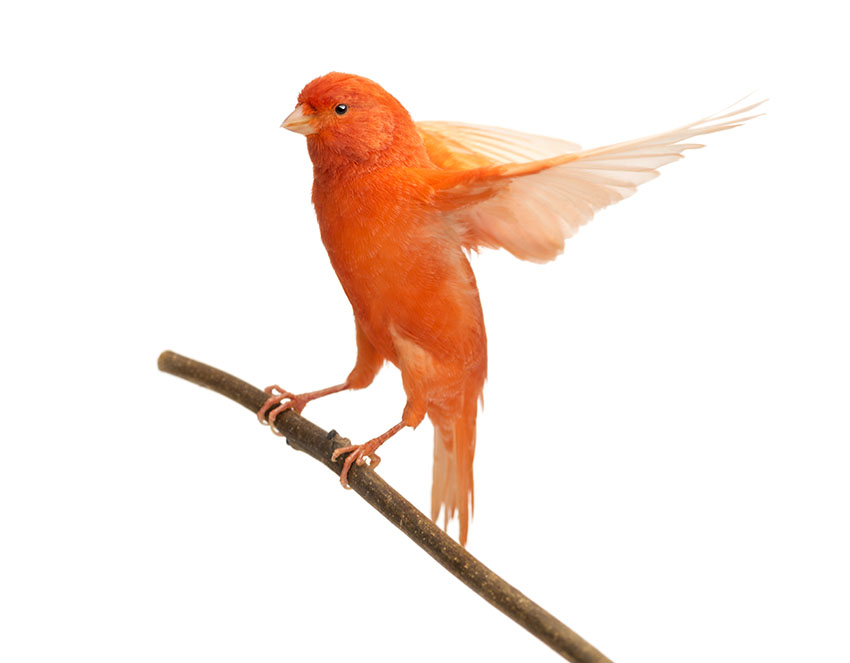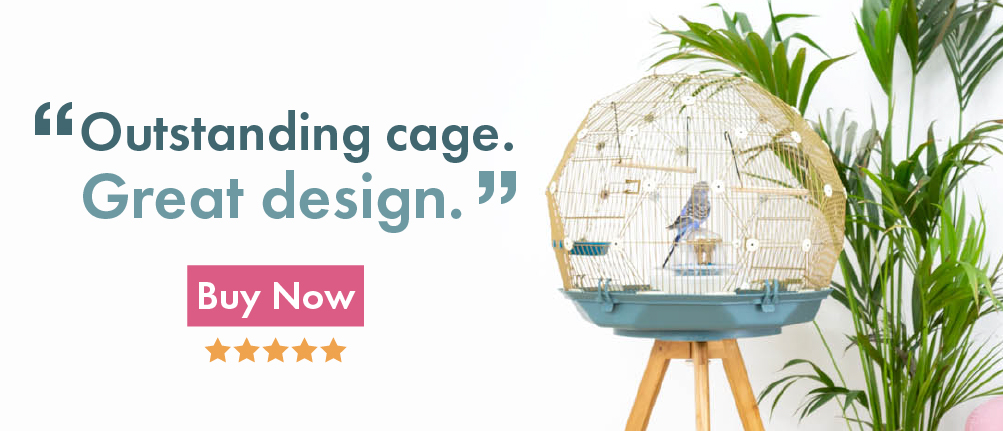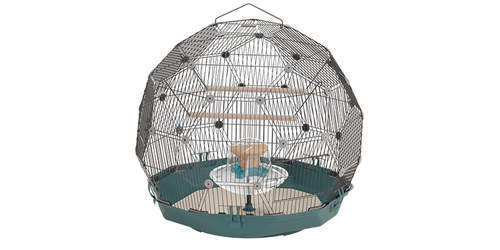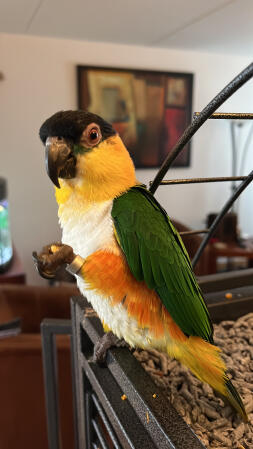Shop-bought cages will come with perches as part of the package. These will usually be made from dowelling or plastic, and may be perfectly acceptable. You can, however, make your own perches from the standard wooden dowels available at DIY and hardware stores. Choose ones with a 1.5cm/half inch diameter.
Better still, make perches from branches, using a non-toxic and untreated/unsprayed wood from the list below. Rough branches are good for birds' feet, giving them something rough to grip and providing a manicure into the bargain. Give the wood a scrub first - it’s good practice to make sure anything introduced into the cage is thoroughly clean. Plain water and a vegetable brush will suffice. You can pour boiling water over the stick to kill any microbes, just to be on the safe side. Make sure it’s completely dry before introducing it to the cage – 20 minutes in an oven at 90C (200F) will do the job. It should be allowed to cool before use!

Lots of perching space is one of the core requirements of a bird cage
A branch can be attached to the side of a cage using large washers - they do not necessarily need to span the full width of the cage.
Rope perches, or anything else made of fibres, are best avoided, as small birds can snag their toenails in them. Sandpaper perch covers are not necessary, either - the sand is an abrasive and can make the birds’ feet sore.
In addition to rounded perches, you can also use ones with a flat surface, to add variety. A 4-5cm wide shelf will fit the bill, as finches like to uncurl their toes sometimes.
Safe Wood for Bird Perches
The following woods are suitable for use as Canary and pet finch perches. This isn’t a complete list, but it includes plenty of native and other common trees, giving plenty of choice for any bird keeper based in Europe, so there’s no need to take risks with potentially toxic woods.
- Alder
- Almond
- Apple
- Ash
- Aspen
- Bamboo
- Barberry (berberis)
- Birch
- Beech
- Crabapple
- Dogwood
- Douglas fir
- Elm
- Fig
- Ginkgo
- Grape vines
- Hawthorn
- Hibiscus
- Hickory
- Larch
- Lilac
- Magnolia
- Maple
- Manzanita
- Mountain ash (rowan)
- Mulberry
- Pear
- Poplar
- Pussy willow
- Rose
- Scots pine
- Spruce
- Sycamore
- Vine maple
- Willow
- Yucca
It’s important that any wood you use is free of insecticides, fungicides and other toxic sprays.






Comments
There are no comments just yet